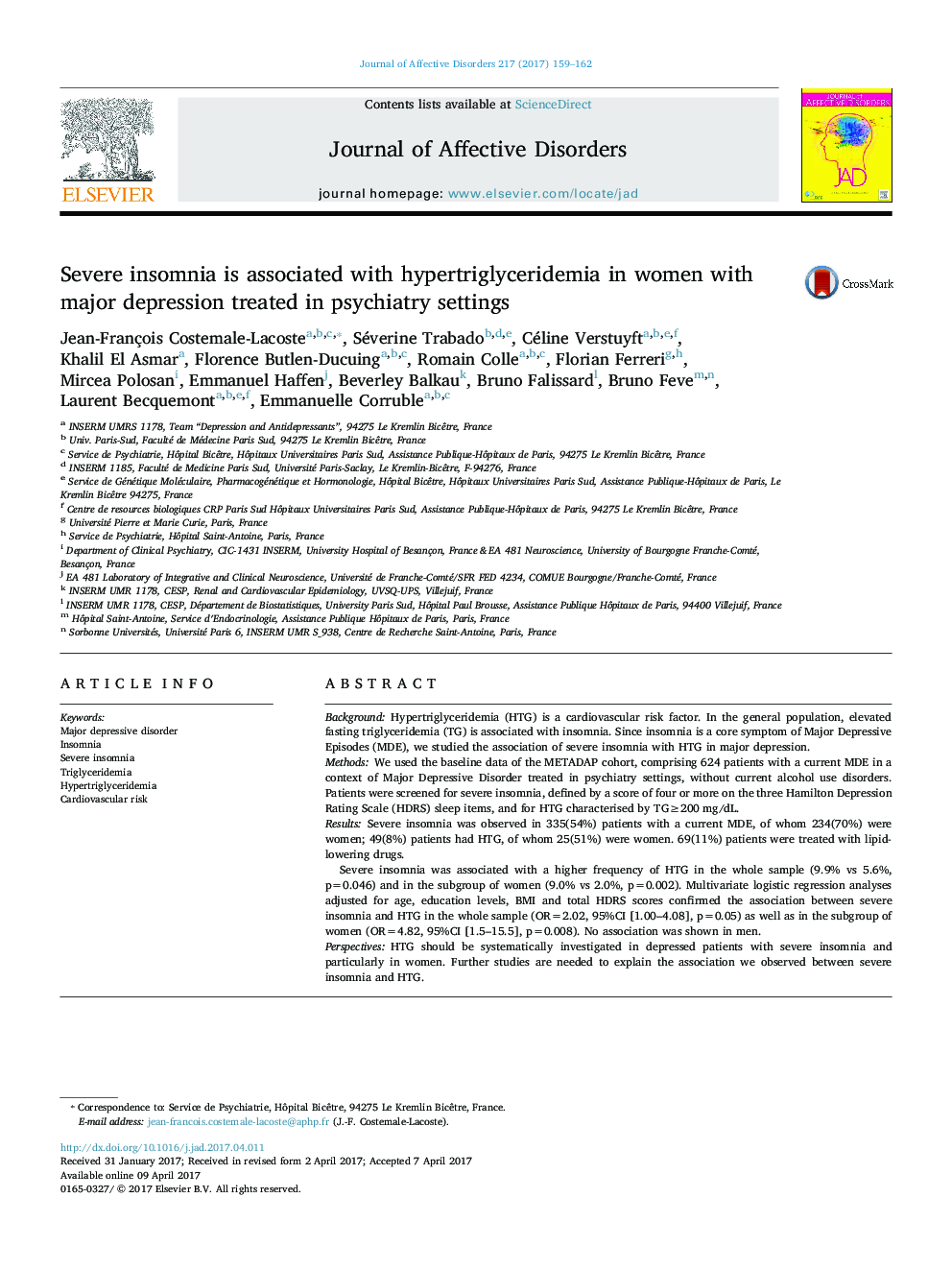| Article ID | Journal | Published Year | Pages | File Type |
|---|---|---|---|---|
| 5722196 | Journal of Affective Disorders | 2017 | 4 Pages |
â¢Hypertriglyceridemia (HTG) is associated with severe insomnia (SI) in patients in current major depressive episode.â¢Women with SI have a risk of HTG more than 4-fold higher than women without SI independently from potential confounders.â¢Men do not show any association between HTG and SI.â¢Severe insomnia in women with major depression may be associated with a higher cardiovascular risk.
BackgroundHypertriglyceridemia (HTG) is a cardiovascular risk factor. In the general population, elevated fasting triglyceridemia (TG) is associated with insomnia. Since insomnia is a core symptom of Major Depressive Episodes (MDE), we studied the association of severe insomnia with HTG in major depression.MethodsWe used the baseline data of the METADAP cohort, comprising 624 patients with a current MDE in a context of Major Depressive Disorder treated in psychiatry settings, without current alcohol use disorders. Patients were screened for severe insomnia, defined by a score of four or more on the three Hamilton Depression Rating Scale (HDRS) sleep items, and for HTG characterised by TGâ¥200 mg/dL.ResultsSevere insomnia was observed in 335(54%) patients with a current MDE, of whom 234(70%) were women; 49(8%) patients had HTG, of whom 25(51%) were women. 69(11%) patients were treated with lipid-lowering drugs.Severe insomnia was associated with a higher frequency of HTG in the whole sample (9.9% vs 5.6%, p=0.046) and in the subgroup of women (9.0% vs 2.0%, p=0.002). Multivariate logistic regression analyses adjusted for age, education levels, BMI and total HDRS scores confirmed the association between severe insomnia and HTG in the whole sample (OR=2.02, 95%CI [1.00-4.08], p=0.05) as well as in the subgroup of women (OR=4.82, 95%CI [1.5-15.5], p=0.008). No association was shown in men.PerspectivesHTG should be systematically investigated in depressed patients with severe insomnia and particularly in women. Further studies are needed to explain the association we observed between severe insomnia and HTG.
